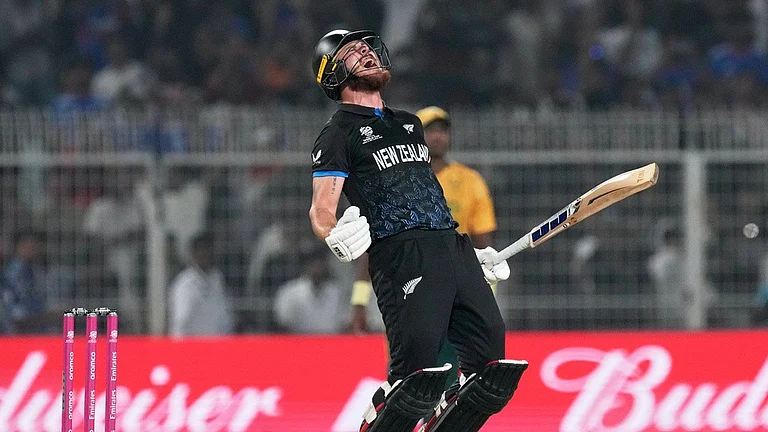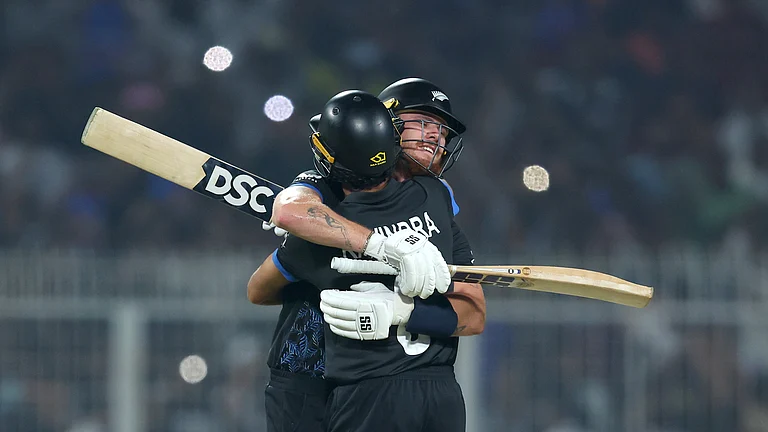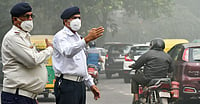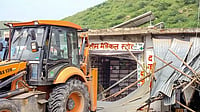While the country’s capital prepares for a celebratory G20 summit, the country’s border state is wrought with conflict and disharmony. The prolonged ethnic clash between the two communities-Kuki and Meitei, broke out in Manipur in early May, and the civilians continue to grapple with its harsh consequences. The conflict resulted in 130 deaths and has displaced over 60,000 people. While it has been more than 120 days since the conflict, the government only took notice of it or rather cared to acknowledge the situation only recently, after a brutal nudge from the Supreme Court. And although the government has, since intervened to ameliorate the situation by setting up relief camps and facilitating peace talks between the communities, there is still a long way to go. The relief camps set up by the government can soon potentially metamorphose into a breeding ground for untreated diseases and communal propaganda, if not looked into.
In order to prevent a similar predicament, a five-member team of doctors from Indian Doctors for Peace and Development (IDPD) visited relief camps in Manipur on September 1 and 2 to assess the camp’s healthcare needs. The team of doctors met with inmates and nodal officers of the relief camps, officials of health department, workers of Civil Society organisations and officers of district administration. “We visited two camps, one was Meiti dominated located in the district of Khumanlankpak, in Imphal and the other was Kuki dominated along the hills, in Kangpokpi district” said Dr Arun Mitra, the President.
“At the moment there are 334 camps, some camps were merged since there were approximately 600 camps earlier, each camp houses an average of 200 people. Normally one family occupies one room but in majority of these camps there are two families sharing one room.” Dr Arun added.
While there are forces devoted to the cause of rehabilitation and relief, the team of doctors on ground have observed and recorded certain shortcomings that need to be rectified- they are listed as follow:-
- In a Kuki specific context, there is a serious lack of infrastructure and referral, more so owing to its geographic handicap. Located in the hills, the Kuki dominated camps are deprived of medical colleges or proper health care infrastructure, however, a vast majority of specialists and medical arrangements are located in Imphal. Additionally, the Kuki camp dwellers have to travel long distances because of the denied access to Imphal (Meitei dominated area) in view of the clash.
- An observation common across both relief camps was certainly the lack of infrastructure and space. Lack of space implies a higher risk of infections in the absence of adequate infrastructure.
- Kukis, specifically, lack an adequate referral and triage system in lieu of their geographical disadvantage. Delayed screening can also potentially lead to an increased mortality rate in the camps. The district hospital in the area, they said, had neither an operation theatre nor a blood storage unit, putting pregnant mothers at a greater risk.
- Furthermore, drug procurement and supply is also hindered because of the distrust between the communities, hence, doubly thwarting the movement of services and drugs.
- Signs of Post Traumatic Stress Disorder(PTSD) has been observed predominantly among children, pregnant and lactating women, and senior citizens. Children complain of nightmares and have been unable to play with their peers or attend classes and develop fear psychosis- a result of all the violence they are exposed to. While pregnant women are uncertain about their delivery, lactating mothers are unable to feed due to false beliefs that they have developed as a consequence to the mental and physical trauma- a lack of privacy also contributed to their dilemma. Mothers end up giving ‘powdered milk’ to their children, which can prove fatal to an infant’s health. Senior Citizens, especially among the Kukis complain of losing something as negligible as their reading glasses but since majority of them are practicing Christians and in the habit of reading Bible every day, even the missing pair of glasses can cause them stress. And although the government did intimate a drive of providing them with reading glasses of fixed focal length, it does not suffice.
- An internet shutdown further aggravates the agony of a suffering population as it strips them off even telemedicine facilities. Telemedicine facilities could have not only helped patients but also proven helpful to train doctors, in the wake of an acute shortage of specialists. Dr Shakeel gave an example of apprising doctors and faculties with the know-how of Peritoneal dialysis and Ambu bags- alternate and lesser known methods employed to treat kidney failure and pneumonia respectively.
- Lastly, when discussing mental health distresses, the suddenly unemployed youth of the state have to be taken into account too. The youth, who mostly came from an agricultural background are also, suddenly out of jobs and utterly lost by the same, since they know nothing beyond agriculture. Although some of them have started doing odd jobs to earn a living, it hardly makes up to feed a family, adding to their mental and financial stress.
Government Intervention
When asked about the Government intervention in the riot hit state, Dr Arun Mitra and Dr Shakeel Ur Rahman, stated that the panel has curated a list of measures for the government to act upon, to expedite and facilitate reforms in these camps. Although, since the Supreme Court’s notice, the government has been pressurised to acknowledge and extend help to those displaced by the ethnic clashes, the government's work at these camps requires a lot of improvement, acceded the doctors. The doctors stressed upon the urgency to follow the UNHCR developed ‘sphere standards’ in the relief camps, which essentially has to be supervised by both the State and the Central Government. The ‘Sphere Standard’ includes- Food security and nutrition, Shelter and settlement, WASH( Water, Sanitisation and Hygiene) and Health. However, a robust triage and referral system in developed health infrastructures within and outside the state, has been suggested to be looked into first. They also press on the need of fabricated operation theatres, more so to address a distressed maternal and child health structure.
Measures to evade and simultaneously initiate immunisation against an anticipated measles outbreak- a common occurrence in relief camps, has also been suggested to the government. Keeping in mind the shortage of a nutrient rich diet in these camps, wherein one egg is prescribed to each, over a period of 13 days, Vitamin A supplement has to be facilitated by the government, they added. “If they remain there for 6 more months they will develop night blindness,” said Dr Shakeel, emphasising on the vital need of vitamin A among children. Additionally, psychological counselling services have been underlined as extremely important especially among the vulnerable- children, women, senior citizens and youth.
Since Manipur ‘survives on rumours’, more so in the wake of an internet shutdown, daunting hostility between the two communities- Kuki and Meitei extends to even healthcare. Health officials get located according to their ethnicity, wherein Meitei doctors confine their services to their community and vice versa, revealed the doctors. Hence, the doctors implore civil societies to take initiative to help build confidence between the two communities, and request the government to facilitate the same. Since free movement between the communities and their occupied areas is pertinent to a continued and improved flow of healthcare services and infrastructure, the Government should be held responsible to ensure and instil a sense of security among the groups instead of segregating them, they added. “Manipur has turned into ghettos; we had seen this last in Gujarat in 2002” said Dr Shakeel Ur Rahman. A massive campaign, a long-term exercise to integrate all ethnicities should be taken up collectively by civil societies and the government, he firmly added.





















